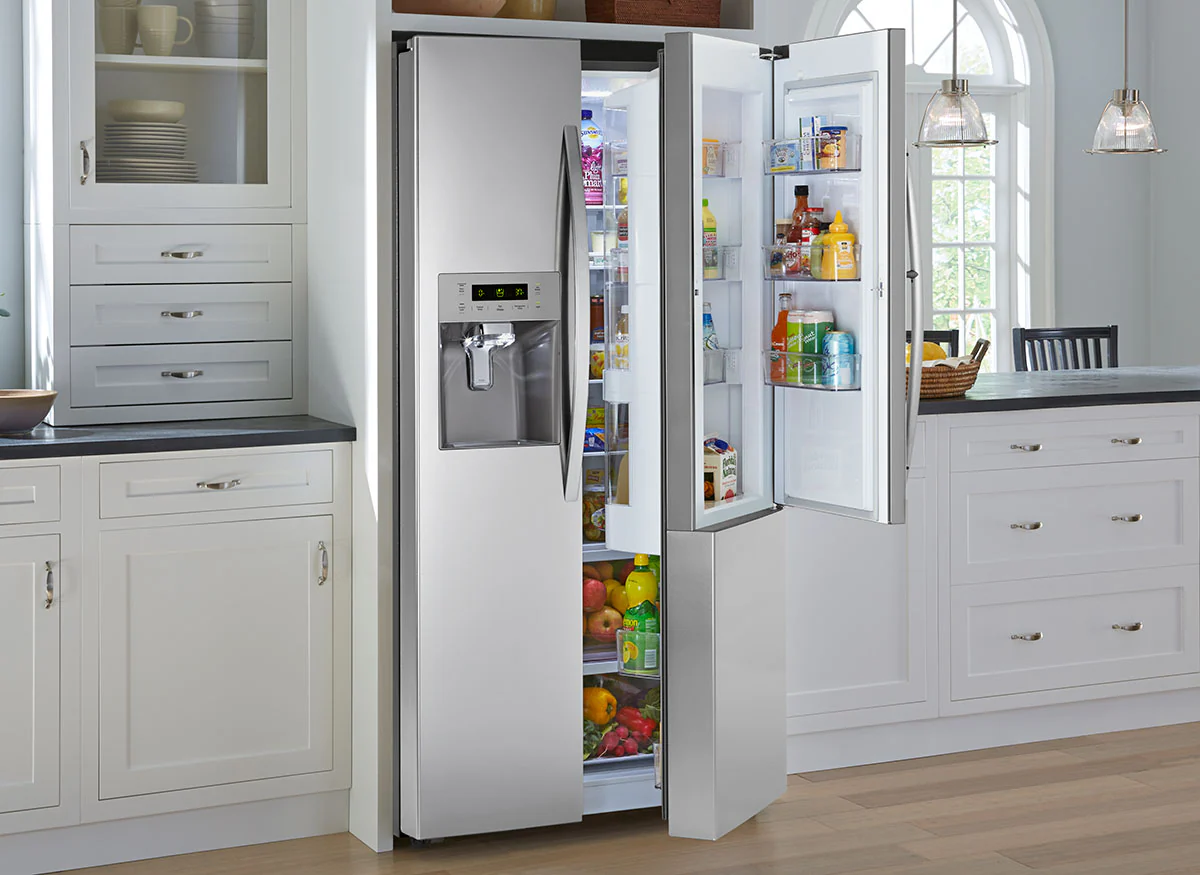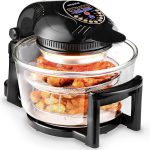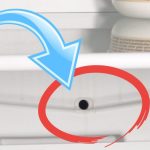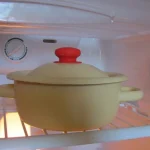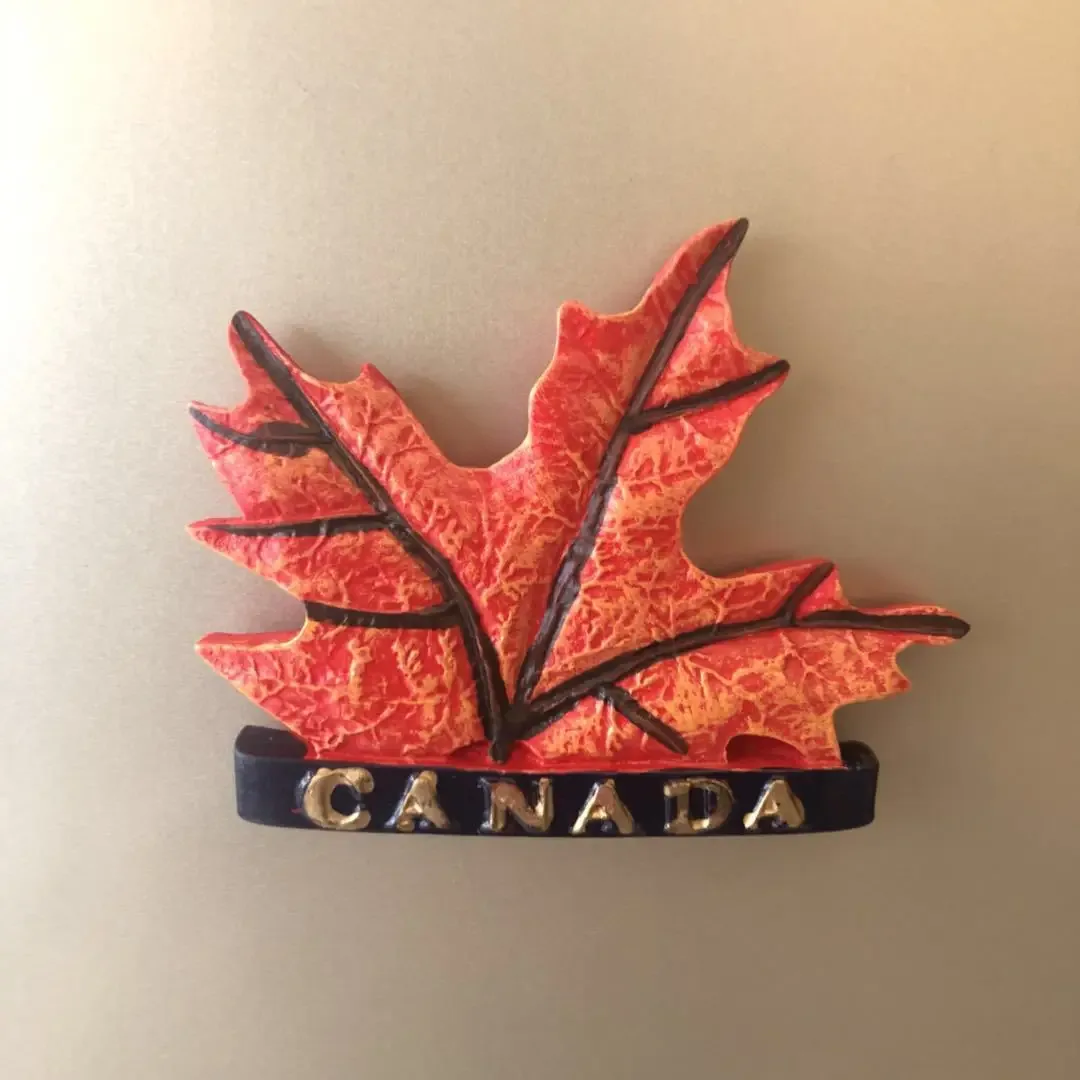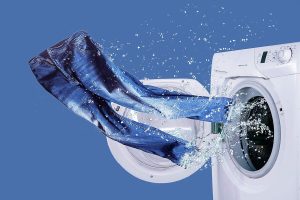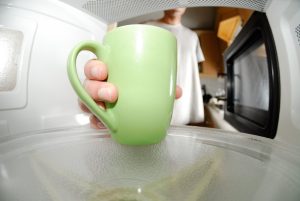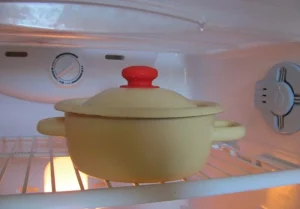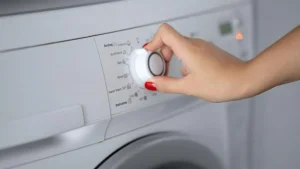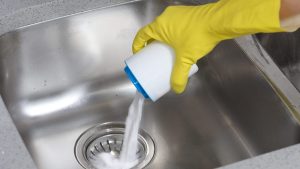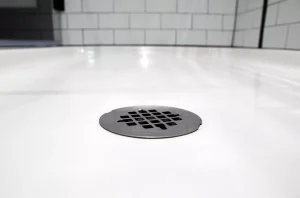Refrigerators are notorious for not being the quietest appliances in the kitchen. However, if the noises escalate to loud humming, grinding or crackling, it is advisable to take action. Here you can find out what to look out for in such cases.
Refrigerators are the absolute center of attention in every kitchen, as almost everything revolves around them and their contents. A quiet, almost inaudible hum and slight gurgling of the cooling system is perfectly normal. However, you should be wary if the noises become much louder and much higher than normal noise levels.
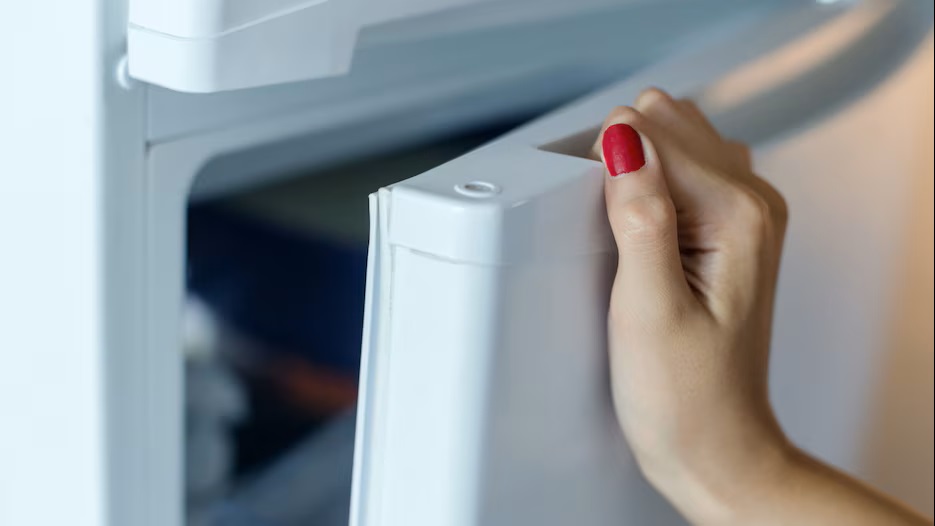
Where do the noises come from?
The typical noise level of a refrigerator is between 35 and 40 decibels (dB) because the appliance is constantly working to keep our food warm. Because it is used daily, it is often activated: every time the refrigerator door is opened, the internal temperature rises and the compressor tries to compensate.
Tip: you can find out how noisy your refrigerator is by looking at the appliance’s energy efficiency label.
Noises in the refrigerator are caused by various processes related to the operation of the appliance. Here are the main causes:
1. Compressor
The compressor is the heart of the cooling system. It pumps coolant through the lines, which can cause a humming or buzzing noise. This noise is often rhythmic because the compressor only kicks on when the temperature in the refrigerator rises. If you hear gurgling or banging noises, this could indicate a poor quality compressor. However, these noises do not occur all the time, but only occasionally.
2. Fan
In modern recirculating-cooled units, the fan ensures that the cold air is evenly distributed. This may result in a quiet humming or noise during operation.
3. Coolant Circulation
The circulation of coolant through the pipes can cause gurgling, hissing or splashing sounds. They occur when the coolant changes state (e.g. from liquid to gaseous).
4. automatic defrosting
Refrigerators with an automatic defrosting system may make crackling or popping noises during the defrosting process. These are caused by the expansion and contraction of materials as the ice inside them melts.
Unusual noises: should you take action?
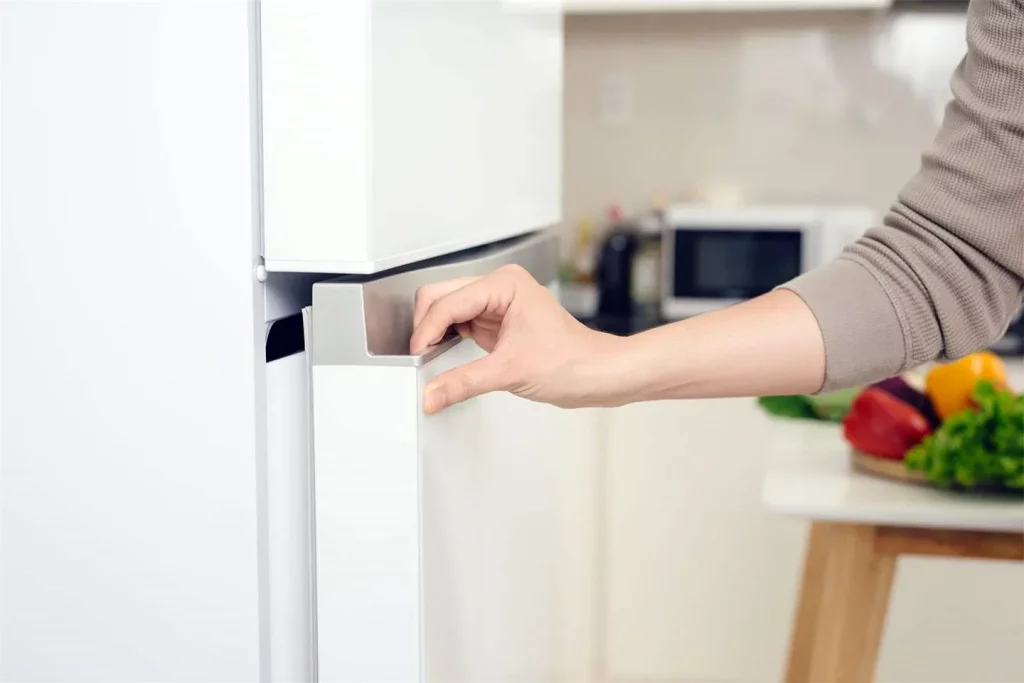
Some noises should be acted upon immediately, as they indicate potential problems that could affect your refrigerator’s performance. Here are some noises where it is advisable to take action:
1. Continuous buzzing
- Possible cause: faulty temperature sensor or thermostat.
- What to do: If the buzzing noise persists, the temperature sensor or thermostat may not be working properly, which can affect cooling. The faulty part must be replaced by a specialist.
2. Compressor constantly starts
- Possible cause: faulty door seal or poor insulation.
- What to do: If the compressor keeps running, warm air may be coming in, indicating a damaged door seal. Defective insulation can also affect efficiency. Check these parts and replace if necessary.
3. Vibrations and loud hum from outside the unit
- Possible cause 1: Tube or condenser friction.
- What to do: Such noises may indicate that the pipes or condenser are rubbing against each other. This may cause damage and deterioration of cooling efficiency. Make sure the unit is properly aligned and, if necessary, have it checked by a professional.
- Possible Cause 2: If the refrigerator is unstable or in close contact with a wall or other furniture, vibrations from the compressor or other moving parts may be transmitted to external surfaces. This results in a loud buzzing sound.
- What to do: Make sure the refrigerator is level and not touching walls or furniture. You can solve the problem by changing the standing position.
4. Creaking or squeaking sounds
- Possible cause: air flaps in No-Frost models.
- What to do: Creaking noises may indicate a problem with the air flaps. If the noise is prolonged or frequent, the unit should be checked to make sure the flaps are working properly and that no parts are blocked. Cleaning the air shutter or applying silicone lubricant to the hinges may also help.
5. Scraping noise
- Possible cause: faulty fuse or defrosted unit.
- What to do: A grinding noise may indicate a faulty fuse or a problem with the defrosting system. It is important to check this to avoid possible damage to the cooling system or its components. If a thick layer of ice has formed due to a faulty fuse, defrost the appliance completely and check if the noise persists.
- Tip: When defrosting the refrigerator, the door may be open or closed. When the door is open, defrosting takes a little longer because the process is affected by the ambient temperature. It is important to collect the melt water.
6. Cracking, cracking or bubbling
- Possible cause: Foreign matter in the cooling system.
- What to do: If these noises are heard, there may be foreign matter or air bubbles in the cooling system. It is important to check the refrigerator to remove air from the system or remove foreign objects that may be affecting the cooling efficiency.
If any of these noises occur and persist for an extended period of time, the refrigerator should be referred to a professional for inspection to avoid serious damage and ensure proper operation of the appliance.
Even harmless causes can be responsible for noise levels.
Loud refrigerator noises can also have causes that do not indicate a malfunction. Usually, these faults can be easily fixed, which quickly reduces the noise level. Possible causes:
- Shelves that are not inserted correctly,
- Fan rubbing against an object,
- Overfilling of the refrigerator,
- Thermostat set to too low a temperature.
Remedy: How to get rid of annoying noises
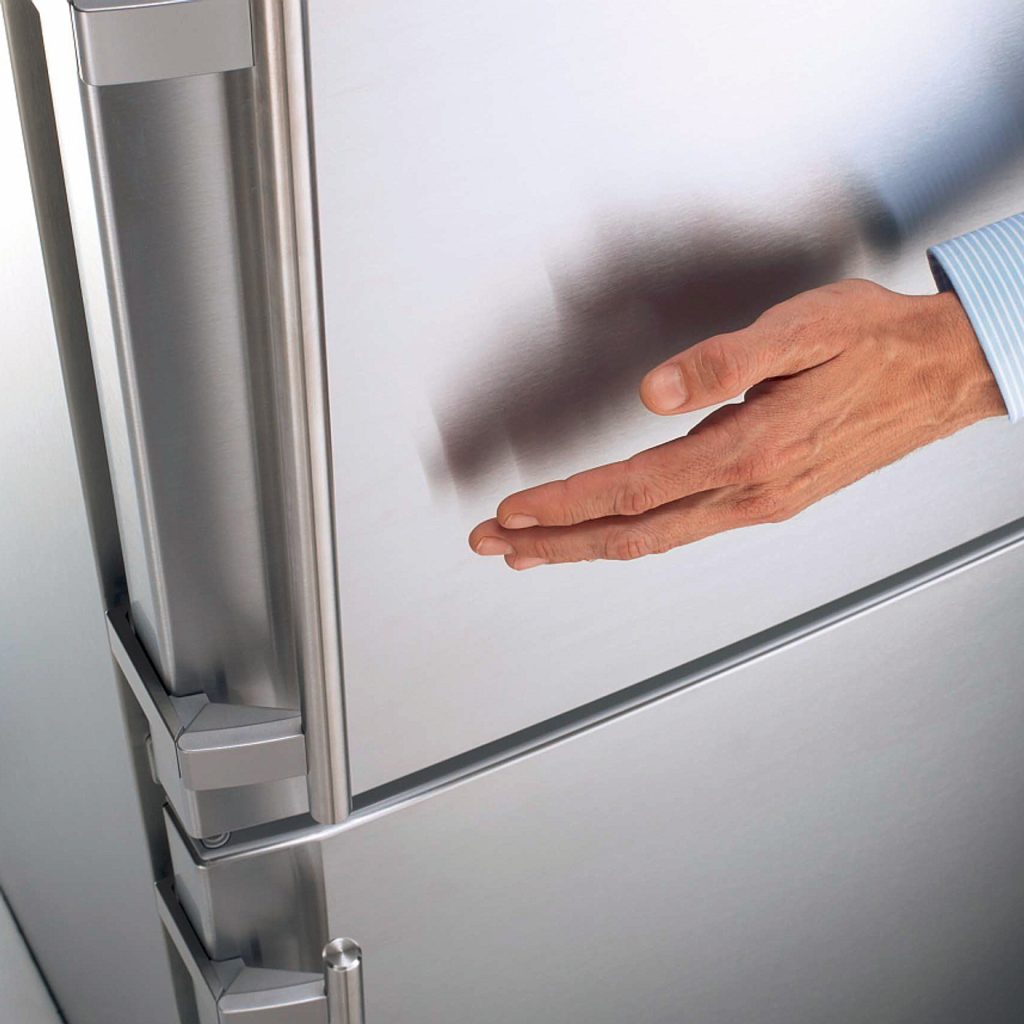
Not all volume problems are caused by a defect. Here are some simple steps to minimize the noise:
- Place the refrigerator correctly: make sure the refrigerator is not near heat sources such as a heater or oven. Make sure there is enough distance from the wall – ideally at least ten centimeters.
- Reduce door opening: open the refrigerator door as little as possible and for short periods of time to maintain a stable temperature and reduce the load on the compressor.
- Keep the seals clean: clean the door seals regularly so that the door closes properly and cold air does not escape.
- Regular maintenance: clean your refrigerator about every two weeks and defrost it twice a year. Keep the back of the unit clean to ensure efficient cooling.
- Avoid overfilling: do not overload the refrigerator with food, as this may impair air circulation and overload the compressor. You should also avoid putting hot food inside, as this puts extra strain on the appliance.
- Adjust the temperature: don’t set the temperature too low. A temperature of around 7°C in the fridge and -18°C in the freezer is usually sufficient.
- When to call a specialist: If you continue to hear unusual noises despite all measures, it is time to call a specialist. Do not attempt to repair electronic components yourself, as this can be dangerous.
